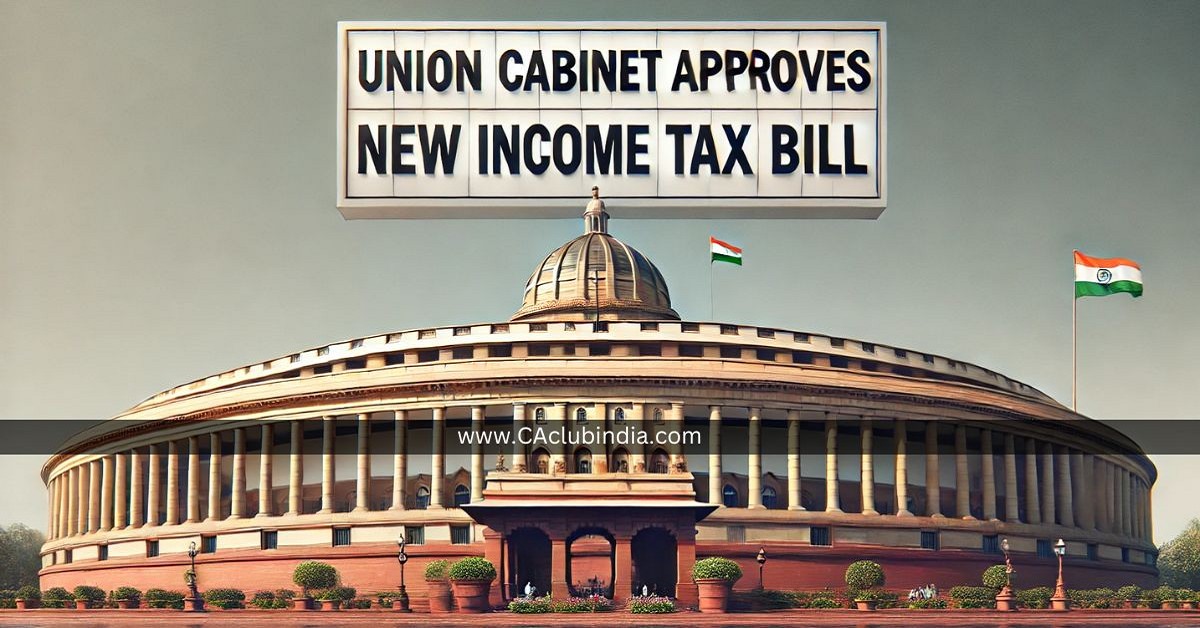The Union Cabinet on Friday approved the new Income Tax Bill, as per sources. The bill is set to replace the Income Tax Act, 1961 and aims to simplify and modernize India's tax system while making compliance easier for taxpayers.

Key Features of the New Income Tax Bill
- No New Taxes: The bill will not introduce any new taxes but will focus on simplifying existing tax laws.
- Simplified Language: Legal language will be made more accessible, ensuring that taxpayers can understand provisions without complexity.
- Concise Legislation: The new law is expected to be 50% shorter than the existing one by eliminating redundant provisions and reducing ambiguity.
- Lower Penalties: There may be provisions to introduce lower penalties for certain offences, making the tax system more taxpayer-friendly.
- Litigation Reduction: By clarifying exceptions to anti-abuse provisions and removing outdated clauses, the new bill aims to reduce tax disputes.
New Income Tax Slabs (Applicable from FY 2025-26)
| Income Range (in Rs) | Income Tax Rate (%) |
|---|---|
| Up to 4,00,000 | 0 |
| 4,00,001 - 8,00,000 | 5 |
| 8,00,001 - 12,00,000 | 10 |
| 12,00,001 - 16,00,000 | 15 |
| 16,00,001 - 20,00,000 | 20 |
| 20,00,001 - 24,00,000 | 25 |
| 24,00,001 and above | 30 |
These revised slabs, announced by Finance Minister Nirmala Sitharaman during her Budget 2024-25 speech, aim to offer tax relief and increase compliance.
Expected Reforms in the New Tax Bill
- Consolidated Tax Regime: Currently, different tax regimes apply to individuals, HUFs, AOPs, BOIs, and companies. The new bill is expected to streamline these into a single tax framework, reducing compliance burdens and ensuring tax certainty.
- Withholding Tax Rationalization: A simplified withholding tax structure could be introduced to ease compliance for businesses and individuals.
- Ease of Doing Business: The new law may specify exceptions to anti-abuse provisions to prevent unnecessary scrutiny of genuine transactions.
- Elimination of Redundant Provisions: Outdated and inapplicable clauses will be removed to make the tax law more precise and objective.
The new tax system will take effect from FY 2025-26, impacting taxpayers from the Assessment Year 2026-27.
With these updates, the government aims to create a more transparent and efficient tax regime, reducing disputes and improving ease of compliance for businesses and individuals alike.





 CAclubindia
CAclubindia

